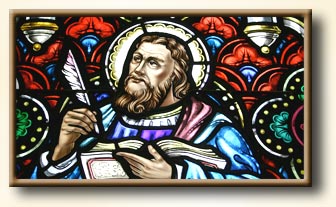|
The last thing Jesus Christ commanded His disciples to do was to go and teach all nations (Matthew 28:19) and to go into all the world and preach the Gospel (Mark 16:15) and to be witnesses to His message “unto the uttermost part of the earth” (Acts 1:8). This, in a word, is evangelism -- the carrying of the Good Tidings of Christ to others.
A fervent and irresistible desire to follow this command marked the Christians of the early Church, whether they were Apostles, presbyters, deacons or humble laity. They carried the message; they preached the Good News everywhere and in the face of all obstacles and persecutions. The result was the spread and triumph of Christianity in the ancient Roman world, and even beyond.
As centuries passed, the fire of this zeal to evangelize, to tell others of the message of Christian salvation, slowly died down, although no age has been without dedicated evangelists. In the Church of England, religious zeal and the impulse to spread the Gospel slowly diminished in the seventeenth century and by the early part of the eighteenth century the Church of England was simply no longer an effective spiritual force. It was no better in American colonies. The will to respond to Christ’s mandate was almost extinct. Until 1729 --
John and Charles Wesley and a group of Oxford students felt the need for a deeper and more active spiritual life. Out of the devotional life they fashioned for themselves arose the revitalizing force of the Evangelical Movement. The Wesleys were Anglicans, but due in part to the slowness of Anglicanism to respond to this new life-giving force, many of their followers in the years to come established the Methodist Church. Nevertheless, in time, the Evangelical Movement also took hold in the Anglican Church, both in England and in the United States. The Gospel took on new life, zealous preaching revived, and missionary work spread over the world.
The term “Evangelical” has often come to have confusing and complex meanings in terms of faith and party churchmanship. There is no room to go into all these nuances here. It is sufficient simply to recall that basically an evangelical churchman is one possessed of an inner compulsion and desire to tell others the Good News which Christ brought to the earth. In the eighteenth century, this compulsion was strongest in “Low Church” Anglicans. In the nineteenth century, it infected “High Church” Anglicans, thanks to the Oxford Movement or Catholic Revival, started by Pusey, Keble, Newman and others in England, and which rapidly spread to the United States and throughout Anglicanism.
Evangelism and the evangelical spirit are not confined to any group or party in Anglicanism. They are an infection which as touched Anglicans of all stripes.
Today, however, a new lassitude with regard to evangelism threatens the energy and effectiveness of Anglicanism, certainly including those new parts known as “Continuing Anglicanism” in the United States. When there is a boring in of secular humanism, or when there is an unhealthy preoccupation with orthodoxy, “purity” of belief, and rigidity of form, the will, desire and enthusiasm for evangelism wither. And so do the Church and the Christian religion.
A keen observer and devoted priest in the Continuing Anglican movement -- “the Church of the Exodus” he calls it -- has diagnosed it thus:
“I believe that Anglicanism…in all parts is suffering from a very serious disease that has afflicted us for so long that we have learned to live with it without feeling sick. I believe that, as Anglicans, we are more concerned about the Church than about God as such. We habitually substitute ecclesiology for theology; we preach and teach…to a world that knows nothing about such things…but which does hunger for the Bread of Life and thirst for the Living God.”
Too many Anglicans today think they are evangelizing when they bring someone to Church. But true evangelism is bringing someone to Christ (the Church will follow). Anglicanism at its finest has never forgotten the command: “Go ye therefore, and teach all nations.” If Anglicans, and other Christians, really believe and are faithful, they will obey that command, gladly and ardently.
|



